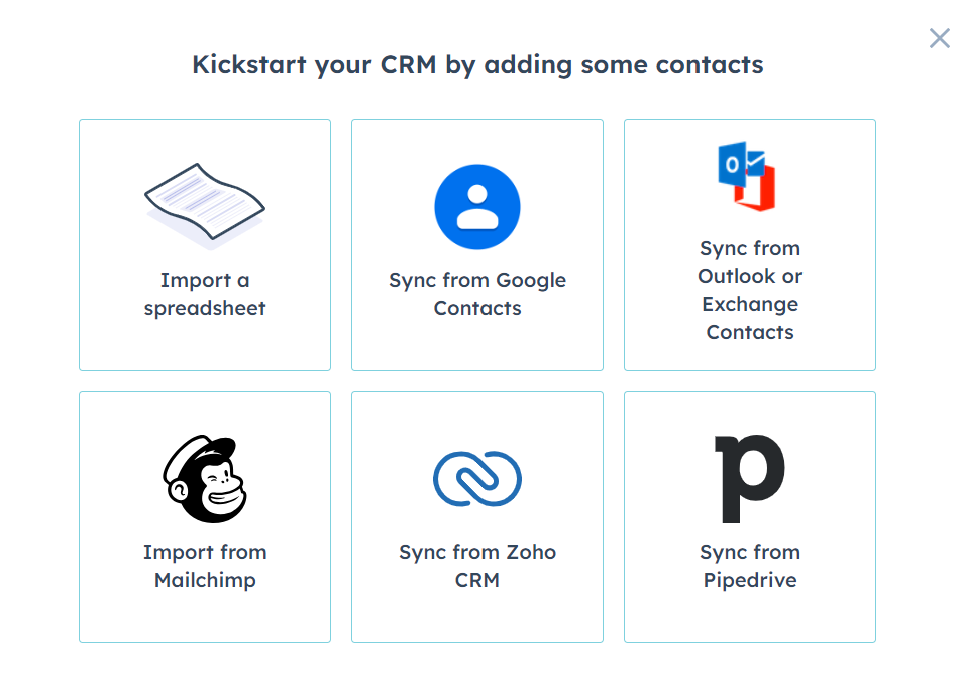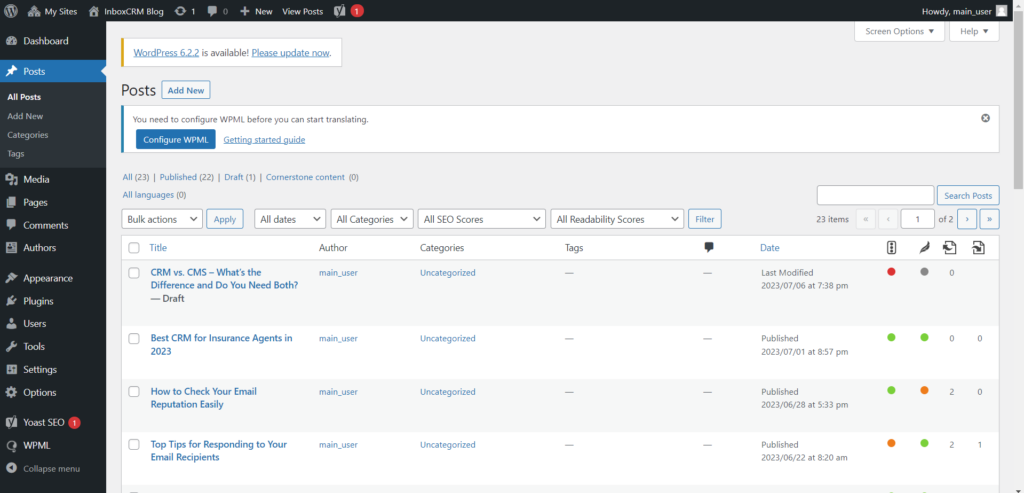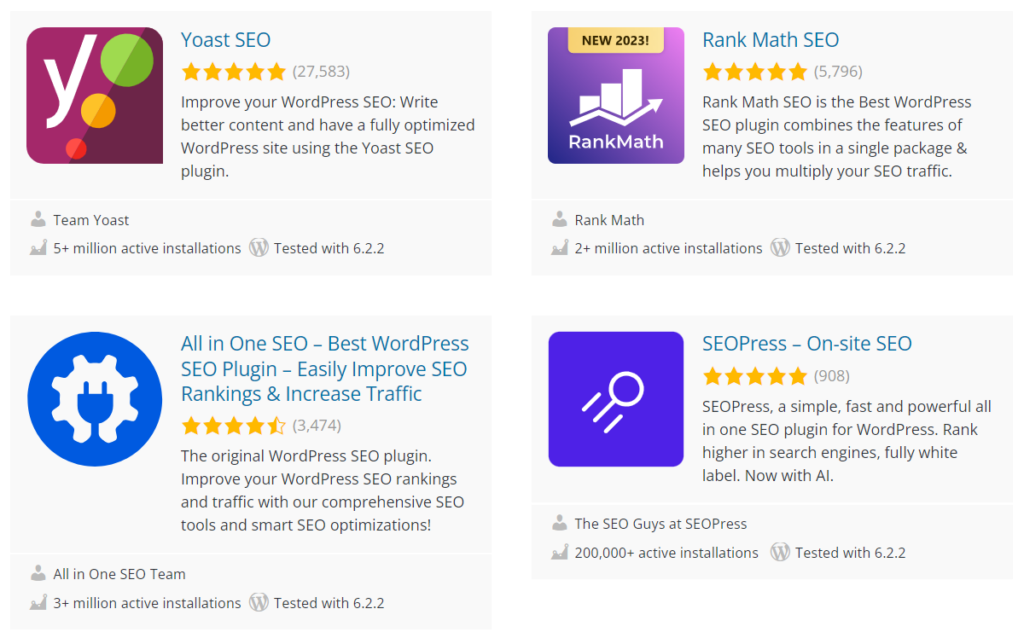CRM and CMS are software tools that have and continue to help e-commerce business owners. Though they have similar acronyms, they’re completely different. CRM focuses more on sales by helping you manage your customers and clients better. CMS, on the other hand, helps in ensuring that your content is intact.
Before you decide whether to pick one or both, find out how they work, differ, and what they feature below.
What Is a CRM?
CRM stands for Customer Relationship Management, and if you’re looking to improve sales, then this is a software tool you should look into. It helps e-commerce business owners manage sales on every level possible.
It keeps data on how your customers interact with your online store. It helps you become aware of your customer preferences and needs. This way, you can get more leads and close more deals while keeping your customers happy at all times.
Most small e-commerce businesses opt for CRM instead of using a spreadsheet to keep track of leads, customer information, and interactions to save time and increase sales faster. This also influences your marketing strategies positively because you’re aware of what your customers are looking for in your online store.
Key CRM Features
Below are the features that make CRM stand out from other software tools that help enhance online businesses.
A Centralized Customer Data
CRM centralizes your customer data so you can easily see trends and get a deeper understanding of your customer needs. It stores all interactions from the first time a customer visits your site to the current moment. With an overview of your customer behavior, you can make better sales and marketing moves.
Email and Other Contacts Integration
With a log of every contact with your customer and being able to see what they prefer, you can promote your products or services better. Depending on what the customer prefers or uses the most, you can create excellent and personalized email and sms marketing that convert to purchases.

Analytics
Analytics is a great feature of CRM platforms that helps you understand your customers better. It usually gives you summaries of reports that entail how your customers are interacting with your brand and draws a conclusion of what needs to be done to improve if needed.
With this feature, sales trends and behavioral patterns are highlighted. This makes you aware of what works and what needs to be improved to keep your customers happy.
Sales Automation
CRM platforms use AI to automate simple repetitive tasks so that your staff doesn’t have to waste time on them. These include email marketing which can help you tackle your potential leads. You can have the same emails sent to previous and new customers, reminding them of current sales, discounts, and new items they can buy.
What Is a CMS?
A content management system (CMS) is a software tool that helps speed up the process of creating your online store or website. It then helps you maintain a good online presence through excellent management of your content.
If you have no clue whatsoever about where to begin creating a website that’ll excellently depict your brand, then you can use CMS platforms like Shopify, Joomla, and WordPress. They’ll give you tools that’ll help you manage your content.

These include a simple user interface that’ll give all of your customers, including the non-tech savvy, ease of navigation. They’ll also give you guidance concerning the design of your website, what it needs to include, and where to place its features. This way, you’ll have your brand presented exceptionally well without the need for extensive technical knowledge.
Key CMS Features
CMSs have a wide range of features, and they are:
Tools that Help Manage Your Content
Most CMSs feature two main tools that help manage your content. One is a back-end content management tool that helps you organize and store your digital assets. The information kept here can help you select the items to put on the second feature, the front-end content publishing tool. With the back-end feature, you can edit and polish your content before moving it to the front-end.
Publishing Tools
Publishing tools enable your customers to access your business through a user interface. They give you a website design and structure for you to place your content in a presentable and user-friendly manner. You’ll also be able to preview your content before you publish it and let your potential customers see it.
Themes and Templates
Depending on the chosen CMS, you’ll find various themes with templates so you can choose the desired look for your website. Some CMSs will require that you download a theme and pay from a third party. This will help you choose the design and colors you want to be associated with your brand.
The template can help guide you on where to put each part of your content. Instead of starting from the beginning, you can have landing, home, and product pages with templates.

SEO Tools
Good CMSs feature SEO tools that’ll help enhance your online presence. This is done through the software’s integrated tools or extensions. They allow you to build sitemaps, optimize your page’s metadata, add redirects, and enhance the site’s performance. This way, your site can be one of the top three links that pop up when someone searches for anything related to your brand.

Blogging
Some CMS platforms also feature a blogging section. This means that you don’t have to create a separate blogging site to give your customers detailed content about your products and further market your business.
What Is the Difference Between a CRM and a CMS?
Since these two software tools are very different, some e-commerce establishments use both. CMS can be the support structure of your content, while CRM can help you ensure that your customers are catered to satisfactorily.
Otherwise, you can use CMS if you’re unfamiliar with building a website or application from scratch and don’t necessarily have the funds to employ a dedicated team specializing in that department. It’ll help put everything in place, and with some, this includes editing your content so there are no spelling and grammar errors. All in all, this is a management tool to help store, organize, and polish your content before it reaches your audience and potential customers.
If you need help drawing in customers to your existing website, then find a good CRM software. This can help you read the activity of your website visitors and provide you with concluded reports of the possible reasons why people come in but never finish their purchases, for instance. Most times, when plenty of potential buyers don’t finish their shopping on your online store, it means that there aren’t enough payment options to choose from. So your solution to this could be adding more payment options.
CRMs also help with marketing by sending automated emails about your products and sales. The aim is to keep your customers happy by addressing issues your customers have, and you can check these behavioral patterns and trends on the data stored by the CRM on each person visiting the site. The goal is increased sales and happier customers.
Which Tool Does Your Business Need – CRM vs. CMS
As mentioned above, CRM and CMS are almost completely different. The difference between CRM and CMS means that there’s no competition between the two because they provide different services for e-commerce businesses.
A CRM helps you manage your customers through stored data that are analyzed to provide reports on behavioral patterns and trends. It gives you great insight into what your customers are looking for on your site. The end goal is to increase sales which can help grow your business. Every online business needs to keep existing customers satisfied and attract new ones.
CMS, on the other hand, has everything to do with designing, organizing, and maintaining a good website. You can have your content SEO optimized so that it’s easy to find. With an attractive theme and answers to your audience’s needs on the site, you can attract new customers.
This means that you can use both of these software tools for your business. Good content management can lure in potential customers; excellent marketing can turn them into real customers and increase sales.
Final Thoughts
Today, new and existing businesses want to have an online presence. However, not everyone is equipped to manage their content and customers in an online setting. This is the reason there are software tools for that, and you can access them through CRM and CMS platforms.
The former helps in managing customers to increase sales, and the latter is the backbone of your website as it manages the content that’ll be seen by visitors. Together, these are powerful tools that can boost your online presence and take your business to the next level.
You can start by checking out InboxCRM from PandaDoc, a simpler way to learn and get the assistance of a CRM.
FAQs
-
You can use a CRM to increase your leads when your sales are declining or you aren’t reaching the targeted sales. It keeps track of all your customers’ activity and helps keep all records of their activity on your site. From visiting your site to making a purchase.
-
When you want to create and maintain an excellent working website for your business, you can use a CMS platform. It’ll help you in creating and managing your content throughout your website. Some CMS platforms make it easier to create your site with ready-made templates and apps.

